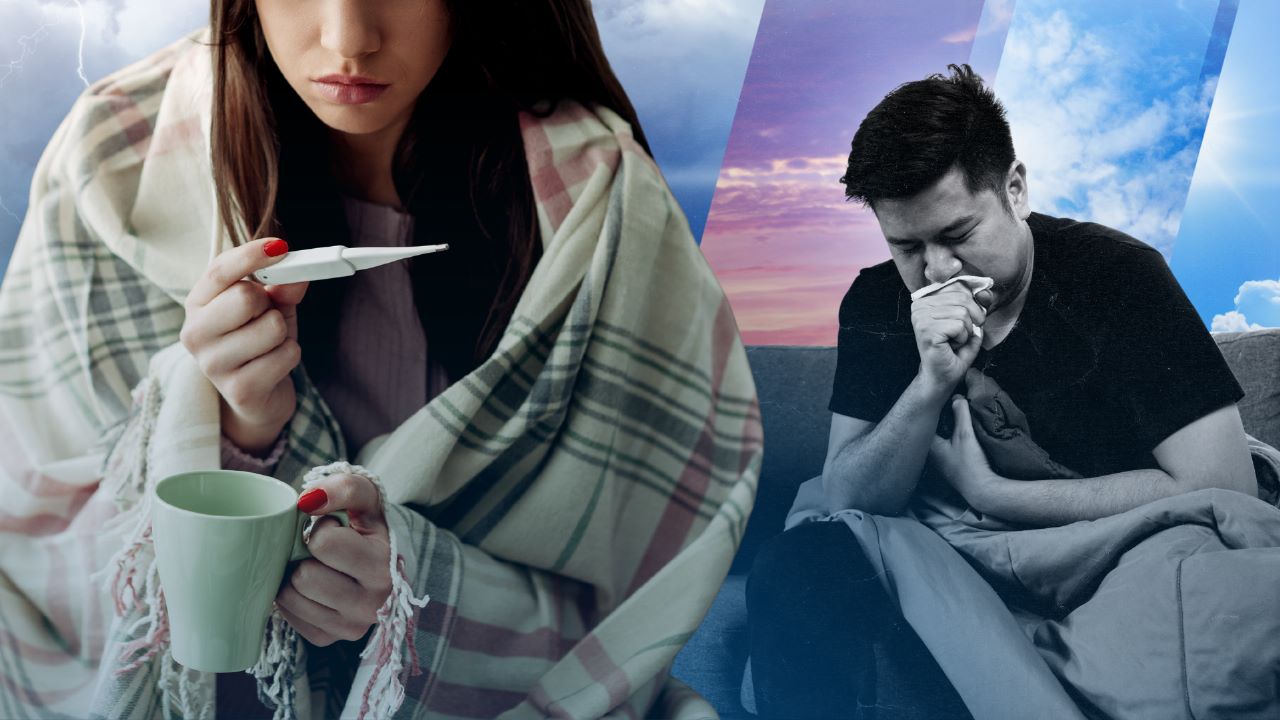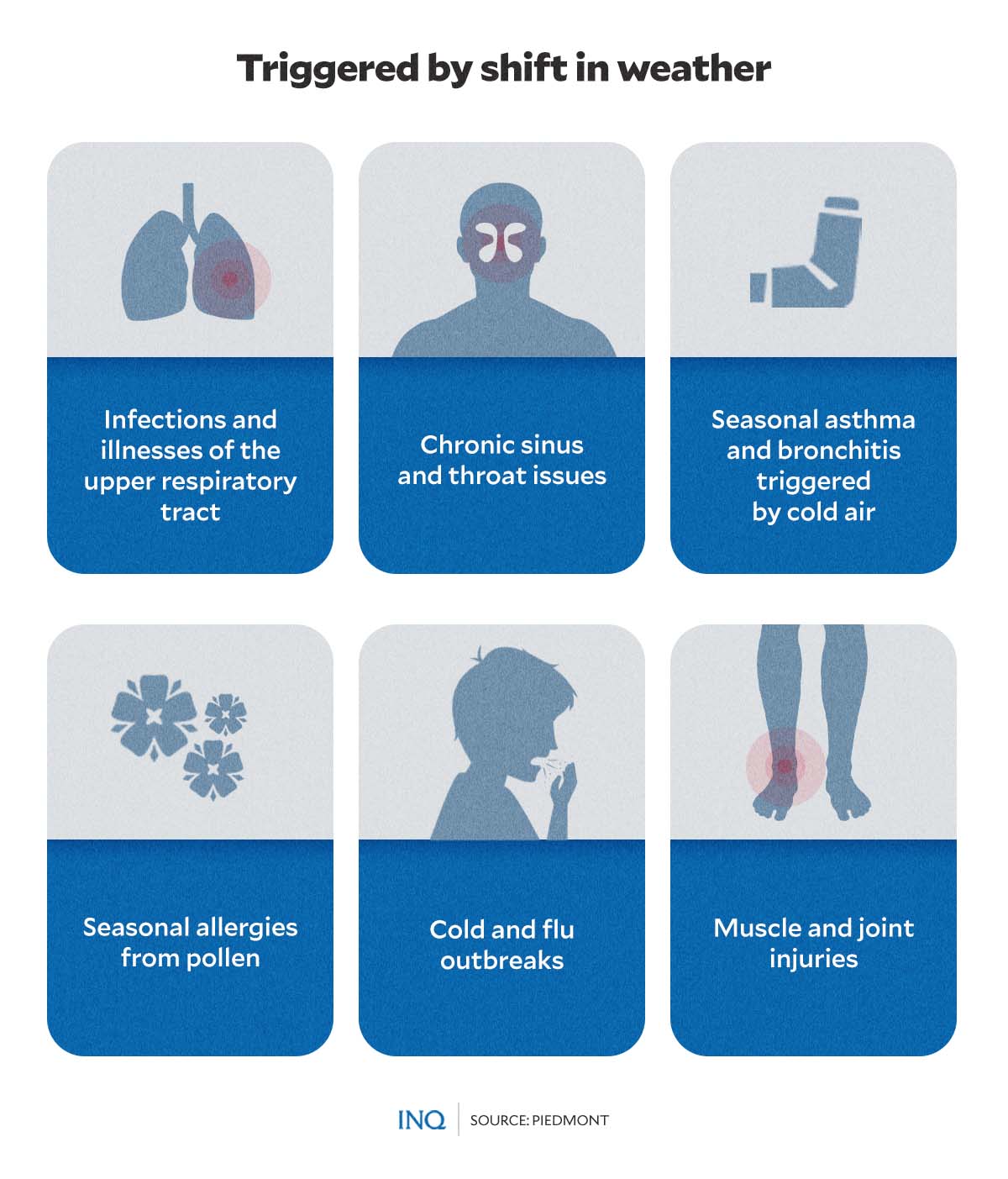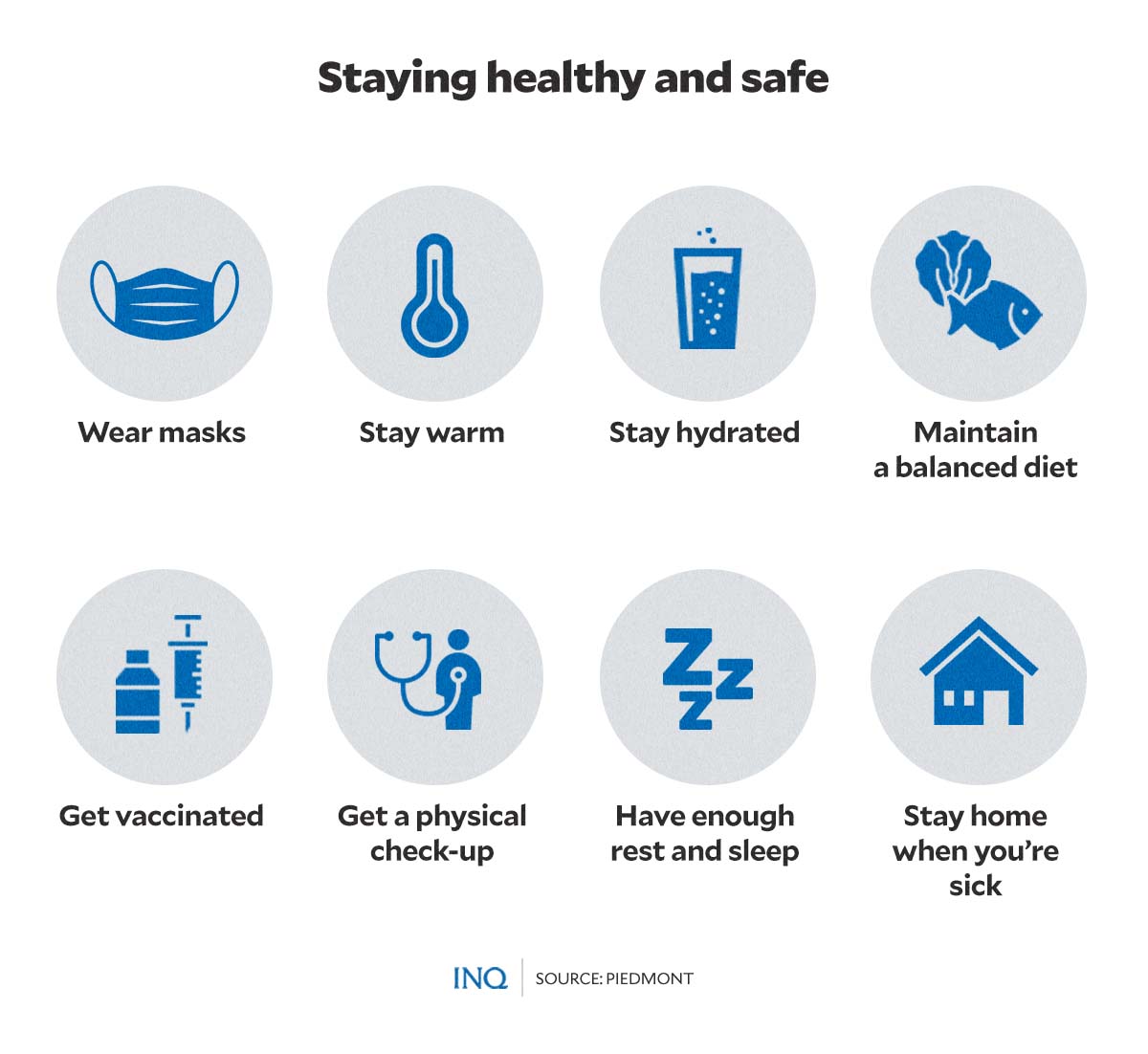Why you get sick when weather suddenly changes
MANILA, Philippines—While simple as it may seem, a change in weather, like extreme heat followed by heavy rain, “can come with a high risk for illness.”
A construction worker, 22-year-old Gerry Copino was feeling well until rain started pouring after a day of scorching heat. He did not know the reason he fell sick, but guessed it was because he was tired.
However, as stated by Amberley Davis in a peer-reviewed article published by the medical website Patient, a shift in weather has effects on health, stressing that while the change “can’t directly make us ill, they are linked to several factors that can make us feel run-down.”
Last March 22, the Philippine Atmospheric, Geophysical and Astronomical Services Administration (Pagasa) declared the start of the dry season, but on April 8, the weather shifted.
This, as Pagasa said a low-pressure area (LPA) was seen near Mindanao and has since developed into tropical depression Amang, the first storm to enter the Philippine Area of Responsibility this year.
READ: Tropical Depression Amang forces evacuation in Bicol
As explained by doctor Vikash Modi in an article published by health care provider Piedmont, weather changes challenge the body, including the immune system: “Our bodies get used to a certain climate, and when those things change suddenly, our body has to try to adapt.”
“Unfortunately, sometimes our bodies have a difficult time adjusting, which can trigger illness.”
How does one become sick?
Unilab, a Philippine-based pharmaceutical company, explained that “the weather per se is not exactly what causes you to feel sick, but rather the resulting environment that arises and allows disease-causing germs and viruses to thrive.”
The medical website Narayana Health said every year, most grown-ups and children suffer from colds 2 to 4 times and 5 to 7 times, respectively, and that this roughly coincides with the number of weather changes within a year, too.
RELATED STORY: DOH warns public on 6 common summer diseases
As stated by Unilab, the immune system takes a hit when sudden weather and temperature changes happen, and this is probably why one struggles with colds, coughs and headaches. Why? Take a look at these factors that can make one’s immune system prone to illness.
- Dry air
Unilab said health professionals have revealed that a lot of viruses thrive in dry air, especially when the temperature drops. This, it said, can make your body more prone to symptoms of illness.
“When you inhale, dry air can cause blood vessels in the upper respiratory tract to narrow in order to preserve heat. This makes it difficult for your white blood cells to reach the mucous membrane and combat disease-causing germs, paving the way for higher disease risk.”
Condair, a Swiss manufacturer of humidification devices and systems, said when someone is ill with a respiratory or viral infection, the aerosols they produce contain harmful and highly infectious microbes.
So in dry conditions with low relative humidity, or below 40 percent, an aerosol virus is more easily dispersed throughout the air of an environment because of the fact that in dry atmospheres, aerosols rapidly lose their moisture content due to the evaporation process.
“These droplets therefore reduce in size and are capable of remaining airborne for far longer. Therefore, more droplets remain airborne and can effectively float freely with minimal gravitational pull.”
- Cold temperatures and high humidity
Doctor Neva Yvas told the US-based Cleveland Clinic that “when the air gets colder, it weakens our immune system, making us more susceptible to infections.”
The medical website Healthline shared that, “new research has found that cold temperatures lower immunity in the nose and make us more susceptible to viruses,” stressing that virus particles enter the nose in two ways—through inhalation or direct touch.
Likewise, as explained by Unilab, in the Philippines, even if temperatures drop, it is still very humid.
“This is a double whammy for your immune system. When you release particles with viruses and germs into the air when you cough or sneeze, the cold air breaks these down, resulting in quicker spread in the air.”
These particles also stay longer in humid conditions, like in the Philippines, putting people at risk of inhaling them.
- Close proximity of people
When there is sudden heavy downpour, it is common for people to seek refuge in a covered space first, such as a waiting shed or closed door establishments like restaurants or malls, Unilab said.
However, it is inevitable that people will stay close or group together in these places. As a result, the viruses and bacteria that may cause diseases can spread faster from one person to another.
“There are more germs indoors and ventilation isn’t as good as being outdoors,” Vyas explained, “so when you’re around more people, viruses spread more easily.”
Illnesses triggered
As stressed by the Cleveland Clinic, “while the annual change from warm to cold weather can seem to lead to illness, it’s helpful to know how that might happen and why.”
Modi told Piedmont of some of these health conditions that can be triggered by a sudden change in the weather:
- Infections and illnesses of the upper respiratory tract
- Chronic sinus and throat issues
- Seasonal asthma and bronchitis triggered by cold air
- Seasonal allergies from pollen
- Cold and flu outbreaks
- Muscle and joint injuries
The Cleveland Clinic said “while you can never fully prevent yourself from getting sick, there’s plenty you can do to protect yourself and decrease the chances of illness.”
- Wear masks
- Stay warm
- Stay hydrated
- Maintain a balanced diet
- Get vaccinated
- Get a physical check-up
- Have enough rest and sleep
- Stay home when you’re sick
READ: Signal No. 1 in 8 Luzon areas due to TD Amang; rain expected in Metro Manila






















